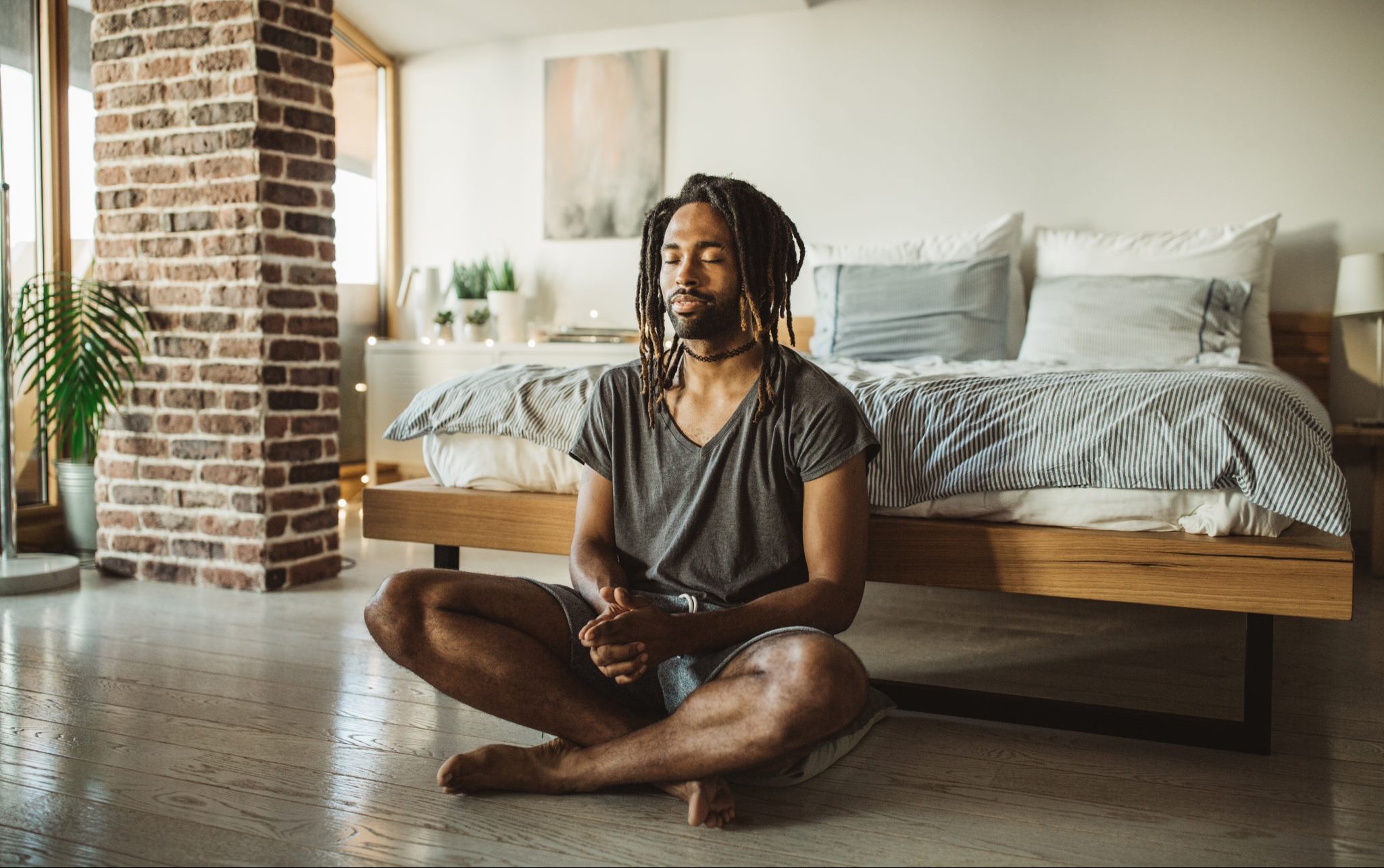Have you ever found yourself tossing and turning waiting for sleep to come, but with no luck, or have woken up in the middle of the night as if someone forced you?
Sleep problems are not uncommon and, regardless of what they are, they leave you completely drained and restless in the morning that follows. Not to mention they can lead to irreparable health damage. Read on to find out why we strongly believe that breathing techniques and meditation come as natural and proven remedies for different types of insomnia.
Possible reasons why you can’t sleep at night
Most people have experienced trouble falling asleep at least once in their lifetime. Often, not being able to get off to sleep can be just a one-time thing that comes and goes leaving no trace. When this happens it means that you experience an acute or short-term insomnia, and the following factors may lead to it:
- Coping with a stressful situation
- Recovering from jet lag
- Having an important meeting or a job interview the next day
- Being over excited after an eventful day
- Taking long daytime naps
- Too much coffee, alcohol or other stimulants during the day
- Your bedroom is too cold or too hot
- Outside noise, unpleasant smell, and other irritants.
As uncomfortable as one-time sleepless night can be, there are many people who suffer from chronic insomnia, and their number is constantly growing. It is much harder to recover from compared to the acute type. If you have trouble falling or staying asleep three times a week for three or more months in a row, it means your insomnia has already become chronic. And, in this case, it can be linked to the following factors:
- Your sleep pattern is irregular
- There is no end to the stress you’re under
- You practice unhealthy sleep habits
- On-call schedules and irregular shifts at work
- You are going through a life transition
- Depression and other neurological conditions
- You are experiencing chronic pain
- Insomnia may be a symptom of other sleep disorders
So, instead of waiting around for the issue to get serious, it’s better to stop it in its tracks. If you have noticed recurrent signs of insomnia within a short interval (once a week or once every two weeks), don’t postpone a visit to a sleep specialist. The sooner, the better, because usually temporary insomnia can go away just by practicing good sleep hygiene and by adopting healthy bedtime habits. As simple as that.
How can meditation help?
If you have trouble falling asleep from time to time it might mean that your brain is involved in too much mental activity. The more you’re unable to fall asleep the more you keep fixating on this inability which makes falling asleep even more difficult. Meditation for sleep can be a sweet relief from your racing thoughts. It balances out excessive brain activity, lowers heart rate, and focuses on calming your mind with the help of breathing. Simply put, when we meditate, we enter a state of deep relaxation which leads to deeper sleep.
Due to many flaws in traditional treatments, people suffering from insomnia often turn to other options that may help them deal with their sleep problem, such as acupuncture, herbal treatments, yoga and meditation.
But can meditation really help fight chronic insomnia, alone or as a part of the treatment?
The research study conducted by the Rush University Medical Center showed it can. 54 people participated in the study, the aim of which was to evaluate the efficacy of mindfulness meditation for treatment of chronic insomnia. It went on for eight consecutive weeks and showed a significant reduction in total wake time of the participants.
But it didn’t end there. Not only did mindfulness-based therapy help these people sleep better during the study, it also showed high rates of treatment remission through the follow-up, and these rates remained largely stable over time. All in all, it proved that meditation can be seriously considered to be a viable treatment option for people with chronic insomnia and be a great alternative to traditional treatments.
Breathing meditation to help you fall asleep faster
Just like any other mindful practice, the meditation that helps you sleep or fall back asleep boosts your awareness of the present moment in which you choose a calming focus (a perfect day in your life, a pleasant sound or a color that soothes you) and observe the flow of your breath.
If you are new to meditation and find your own thoughts too distracting to focus on nothing else but breathing, at first you can try a guided meditation to help you fall asleep.
Here is a relaxing and fairly simple breathing technique that we recommend you try whenever you have trouble nodding off:
- Prepare for sleep: lie down and cover yourself with a blanket
- Take three long breaths
- Start taking short powerful breaths only with your nose
- Every inhale/exhale should take only a second
- Closely focus on your breathing
- Continue like this for about 30 seconds
You may feel slightly and pleasantly lightheaded because you rapidly enrich your brain with oxygen.
Every 30 seconds start gradually extending your breath by 1-2 seconds until you find yourself breathing very slowly. Chances are, you’ll already be sound asleep within a minute.
This treat for sleep makes it possible for you to set off to the land of nod and wake up refreshed and full of energy. You will no longer feel sluggish by mid-day and your productivity may skyrocket.





